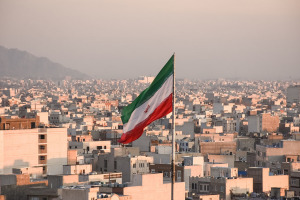Egyptian Christians Express Concern over Abuses
The U.S. Copts Association urged the President to raise issues of Egyptian Christian human rights during his meeting with Egyptian Prime Minister Ahmed Nazif yesterday.
An association representing over 700,000 Egyptian Christians in the United States urged the President to raise issues of Egyptian Christian human rights during his meeting with Egyptian Prime Minister Ahmed Nazif yesterday.
In a May 18 letter to President George W. Bush, U.S. Copts Association president Michael Meunier commended the President for his commitment to democratic development in the Arabic-speaking world but requested that he present the nation’s concern over the discrimination and persecution suffered by Egypt's indigenous Coptic minority.
“As members of an endangered native religious and cultural minority, Egypt’s Coptic Christians request you relay to Egyptian Prime Minister Ahmed Nazif the U.S.’s concern over the discrimination and persecution suffered by Egypt’s indigenous Copts,” Meunier wrote in the letter.
According to the U.S. Copts Association, Egypt's indigenous, pre-Arab Christian Copts — numbering over 12 million and constituting between 15 to 20 percent of the Egyptian population — continue to suffer human rights abuses and discrimination under Egyptian law.
Meunier's letter, which was signed by Coptic leaders around the world, outlined several human and civil rights abuses — “both tacitly and openly endorsed by the Egyptian government — including police-sanctioned hate crimes such as the kidnapping and forced conversion of young Coptic women and the destruction of Christian villages and houses of worship,” the U.S. Copts Association reported.
Adly Youssef, chairman of the Zurich International Coptic Symposium, said, “The international Coptic community believes that to effectively address Egyptian Christians' concerns, Egypt needs to implement several key legislative reforms and affirmative actions."
However, Meunier noted that, “Despite the censure of the U.S. State Department, United Nations, NGOs such as Amnesty International, and bipartisan members of Congress, the Egyptian government — led by President Hosni Mubarak — remains impervious to legitimate Coptic grievances.
"Thus far, Copts have not reaped the benefits of limited reforms proposed by President Mubarak," he added.
Meunier's letter also included a list of recommended reforms, assembled by a panel of internationally-recognized scholars at the Symposium. The reforms suggested by Meunier include altering Egyptian legislation to affect a complete separation of religion and state, abolishing outdated laws such as the Hamayouni Decree limiting church construction, and allocating positions for Copts in high-ranking government, law enforcement, and other official occupations.




























